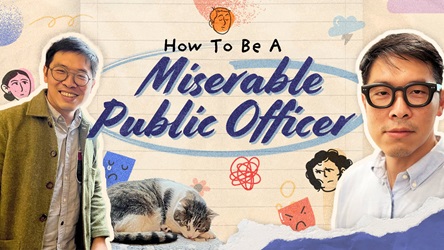Conflict In A Controlled, Safe Space Is Crucial
Chief Negotiator, Climate Change Office, Ministry of Foreign Affairs (2014 — present)
Ambassador to the World Trade Organization and World Intellectual Property Organization (2011 — 2014)
Director-General, ASEAN-Singapore National Secretariat (2009 — 2010)

DEAR YOUNG OFFICER,
As international negotiations go, not every negotiator gets to see the completion of what s/he is negotiating. The Singapore team was privileged to witness and have a direct role in the successful conclusion of the Paris Agreement of the United Nations Framework Convention on Climate Change at its 21st Conference of Parties (COP21) in December 2015. This brought 195 countries together in a universal climate change agreement after six years of intense negotiations.
I can say with conviction that it was not I, personally, who got invited to chair the meetings that worked on portions of those successful agreements. It was the Singapore brand name and everything that we stand for at international fora — pragmatism and the ability to understand and analyse issues candidly, plus the trust that we would not abuse our role to advance our own agenda — that got me invited.
Such a reputation did not come overnight. It was built up by generations of Singapore representatives who share the same “DNA”. Through such contributions, Singapore continually makes itself relevant to our partners in the international community, for there is no guarantee that a small country would be given such roles in the first place. So one big learning point is to take a long view and a big picture. No matter what job you do in the Public Service, understand the broader legacy around you. Understand what it is you can do within your own sphere of influence (everyone has one), and think of how your portfolio fits into the larger scheme of things. Ask yourself how you can make things even better than the state you found them in.
Chairing an international negotiation offers an endless learning journey. Among the million things inundating you, the more important are: how to handle technical substance, how to handle the range of personalities in the group, and how to build a trusting environment where people will find it easier to agree with you and with each other. Every day the learning curve flexes and changes direction, and one can never assume to know everything, nor to have seen it all (even if it feels like it). Human nature is so diverse, it guarantees unpredictability. So always be psychologically prepared to be surprised when you least expect it.

While good EQ and situational awareness can help, the best way to mitigate such complexity is to simply know your stuff. Without demonstrating a full grasp of the substance you are meant to steward, you will find it hard to win the trust of your negotiating group, and even harder to propose acceptable solutions. As a diplomat, I had no climate science expertise. I was, however, supported by young, capable officers within Team Singapore who supplied me with clear, succinct and useful information. Each time, they played their parts or I would have failed in mine. So it is not a cliché, but an operational reality that we are always stronger working as a team; and also that one is never too young or too old to learn new substance, particularly if it is necessary for the delivery of a good outcome.
Though it sounds counter-intuitive, one of the things that helped secure the Paris Agreement was head-on disagreements, some of which we helped to manage. Many negotiations drag on for years trying to avoid any conflict or ugly confrontations, but conflict in a controlled, safe space is a crucial ingredient for forging success. Disagreeing parties can only see and accept a different way forward after encountering each other’s absolute bottom lines. A chairperson’s ability to manage conflict is therefore significant: you either allow venting to prepare people to accept compromise, or cause an irreparable chasm if you do not actively steer the conversation.
At COP21, there was brinkmanship going on in every one of the 20-odd chapters of the text under negotiation. Many of these had a cross-cutting relationship to the issue of differentiation in the obligations of developed and developing countries. Singapore and Brazil co-facilitated this issue by helping parties have a very candid conversation. This gave the French Presidency of COP21 the tools to find a balance that adequately covered all interests. This meant driving the conversations in a tough but fair manner, which also built trust among differing parties. The French Presidency of COP21 could then capitalise on this at the end to create an acceptable outcome.
Steering negotiations is not something we get to have trial runs of. The thing to remember is that it is not only about knowing your own positions and interests. It is more important to know well the interests of other parties, especially those who do not agree with you. It helps if you know what people are likely to say even before you ask them to speak. Often, negotiators sit through long, intractable meetings. If you use these opportunities to analyse and deepen your understanding of others’ positions, such unenjoyable meetings are not without purpose.
- POSTED ON
Mar 2, 2016
- TEXT BY
Kwok Fook Seng









